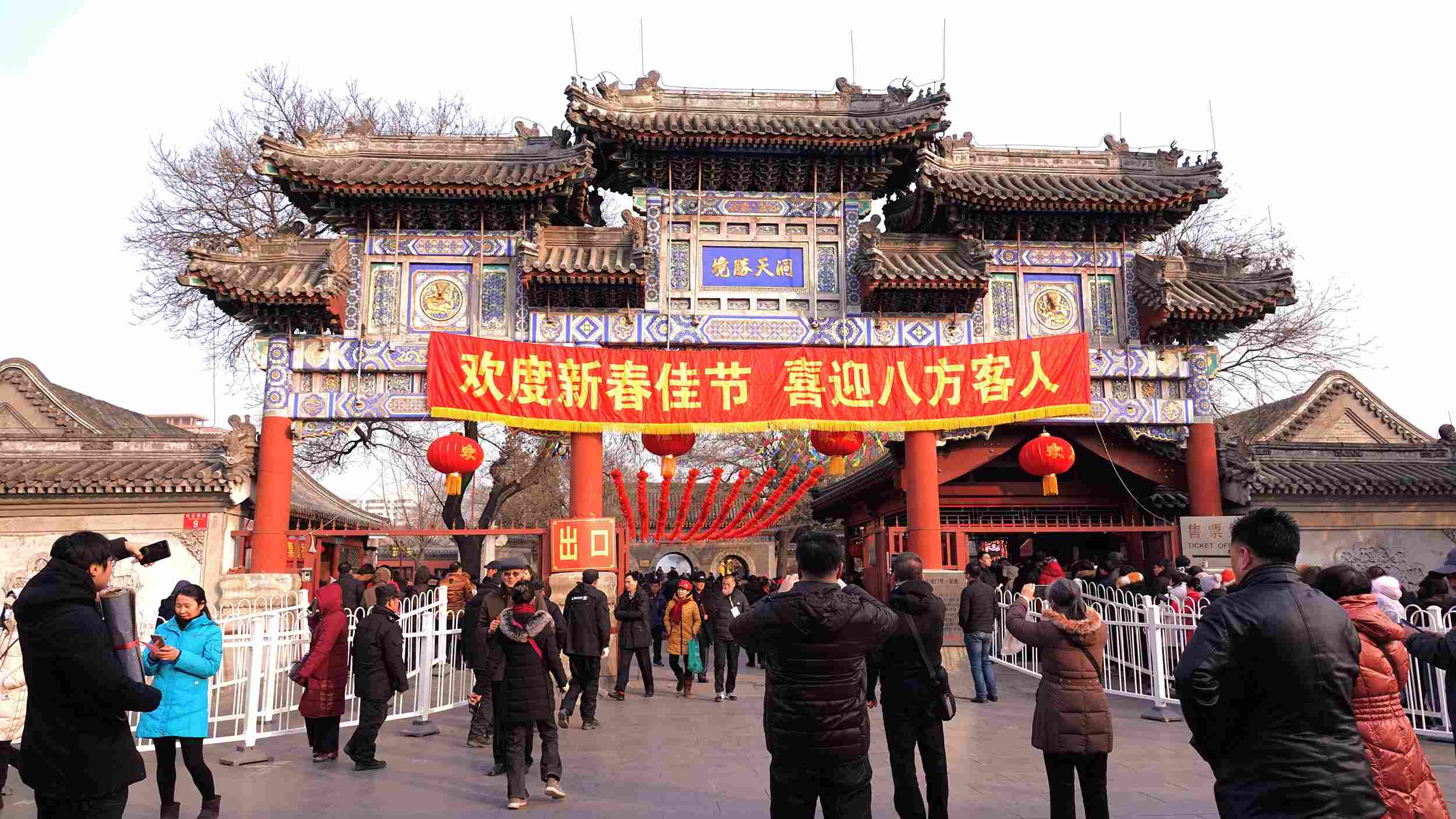Yesterday, we introduced you to the
most popular places to worship in Beijing on the first day of the Lunar New Year.
Today I went to another worship site called Baiyun Temple and had a really interesting tour of the Taoist (China's only native religion) Temple Fair.
Built during the Tang Dynasty, Baiyun Temple is titled "The First Temple under Heaven" when Taoism was flourishing. Every year on the first day of the Lunar New Year, a temple fair is held at the abbey. It has been thought that good wishes will come true if you visit a temple at the beginning of the new year.
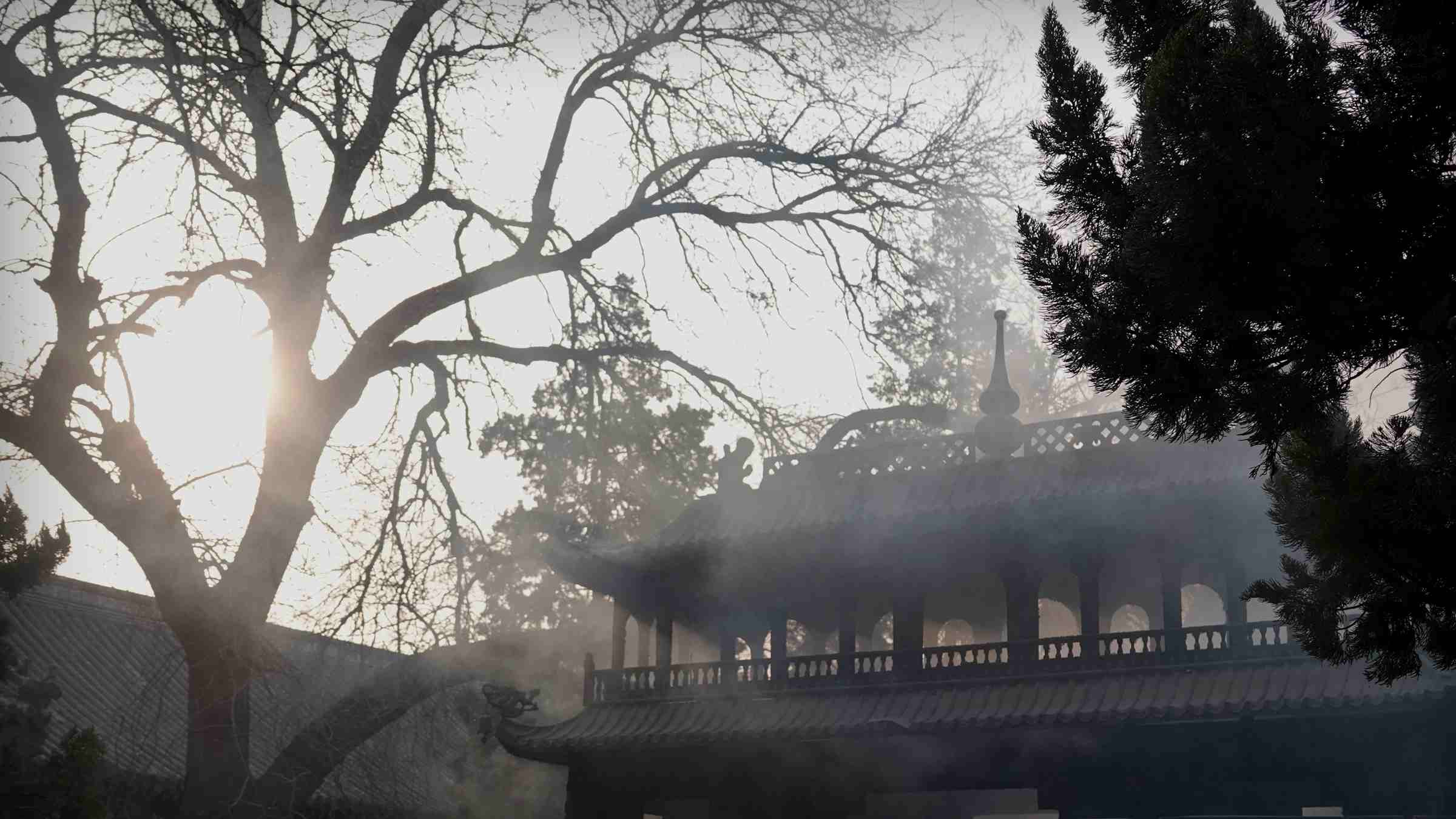
Baiyun Temple in the morning. /CGTN Photo
Baiyun Temple in the morning. /CGTN Photo
6:30 a.m.
My trip started in the early morning. Baiyun Temple opens at 5:30 a.m. today and a lot of people got up early hoping to be the first one to get blessed.
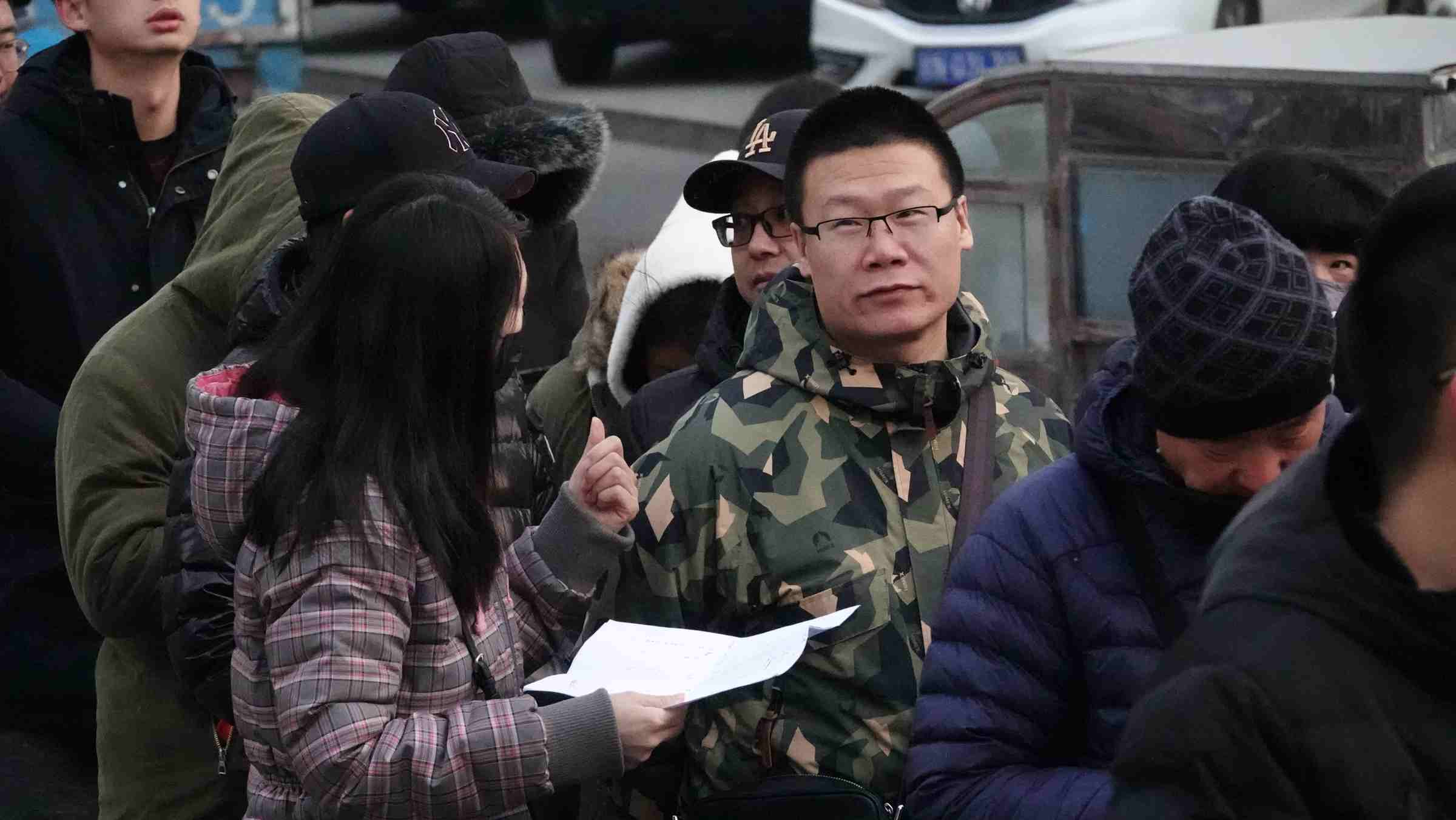
People waiting in line to enter the temple. /CGTN Photo
People waiting in line to enter the temple. /CGTN Photo
7:30 a.m.
I realized that I was not early enough when I saw a line about three blocks away from the temple's south gate. The line was especially for people who wanted to “touch the monkey,” while another line led to the temple's west gate.
The “monkey” deserves a mention here: a tiny stone monkey is hidden in reliefs beside the middle portal and it is said that the monkey is the incarnation of a god; thus, visitors believe that touching the monkey will give them good luck.
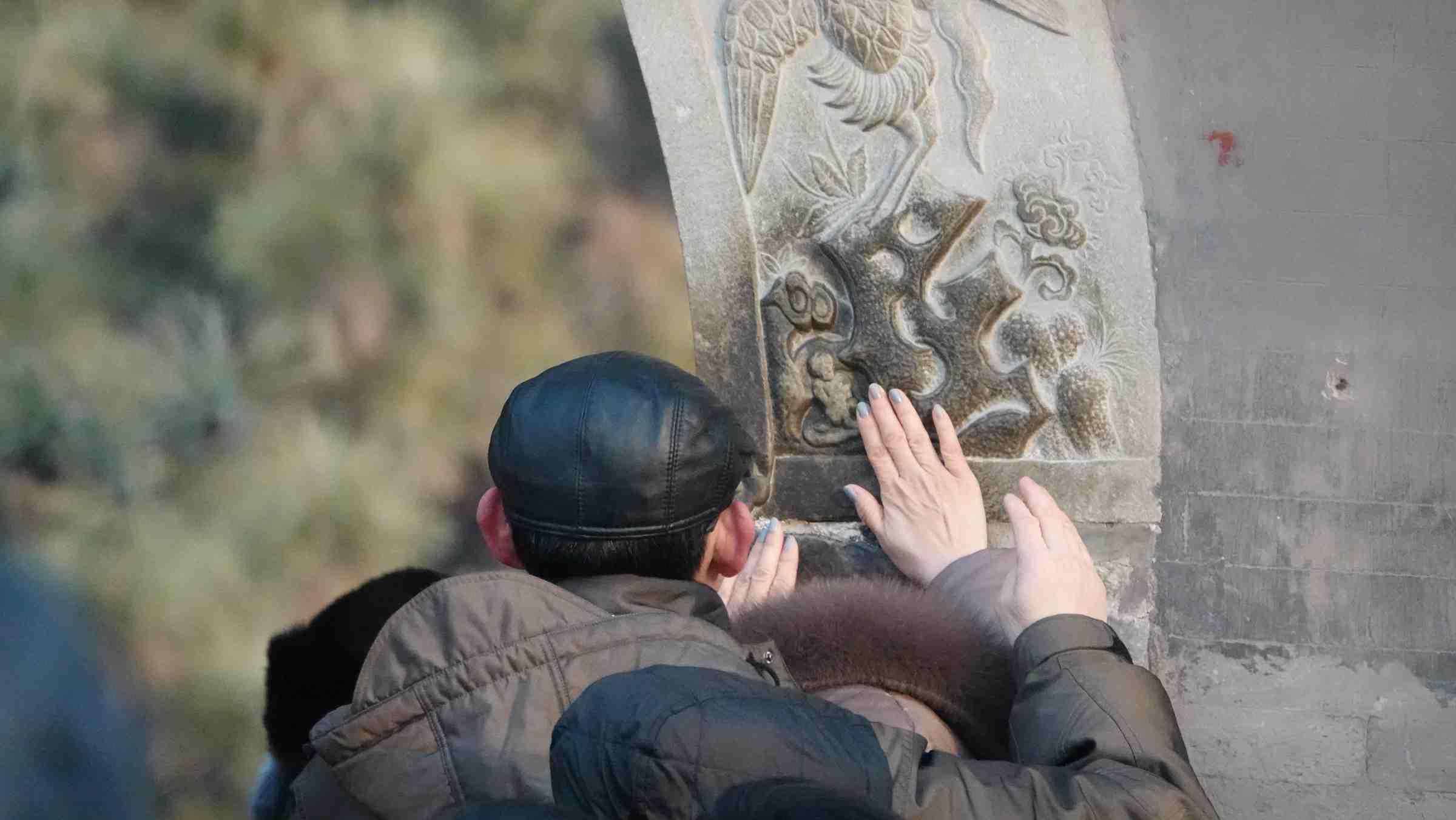
Visitors touching the stone monkey. /CGTN Photo
Visitors touching the stone monkey. /CGTN Photo
There are three stone monkeys located at different places in the relief. However, the line will only lead you to the middle one due to the huge amount of prayers today. If you are interested, go and search for them. It is believed that if you touch all three monkeys your wishes will come true.
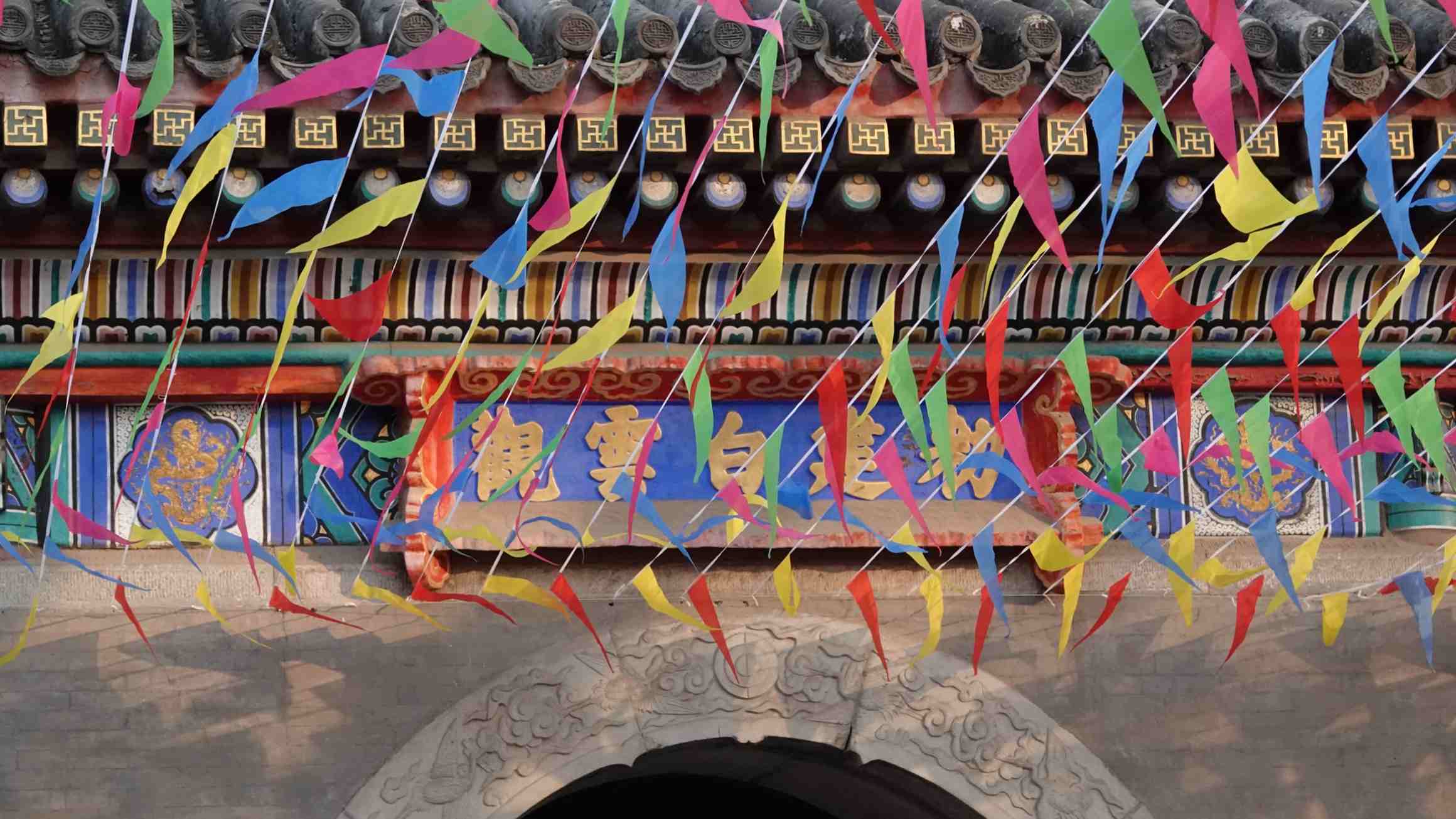
The first gate in Baiyun temple. /CGTN Photo
The first gate in Baiyun temple. /CGTN Photo
8:30 a.m.
After touching the monkey, I entered the first gate and heard the sounds of coins being tossed. A big copper coin is hung on both sides of the Wofeng Bridge and in one of the archways, there's a large bell. Where does the sound come from? People believe that if the coin they toss hits the bell, the road to wealth is wide open and they will be blessed with prosperity.
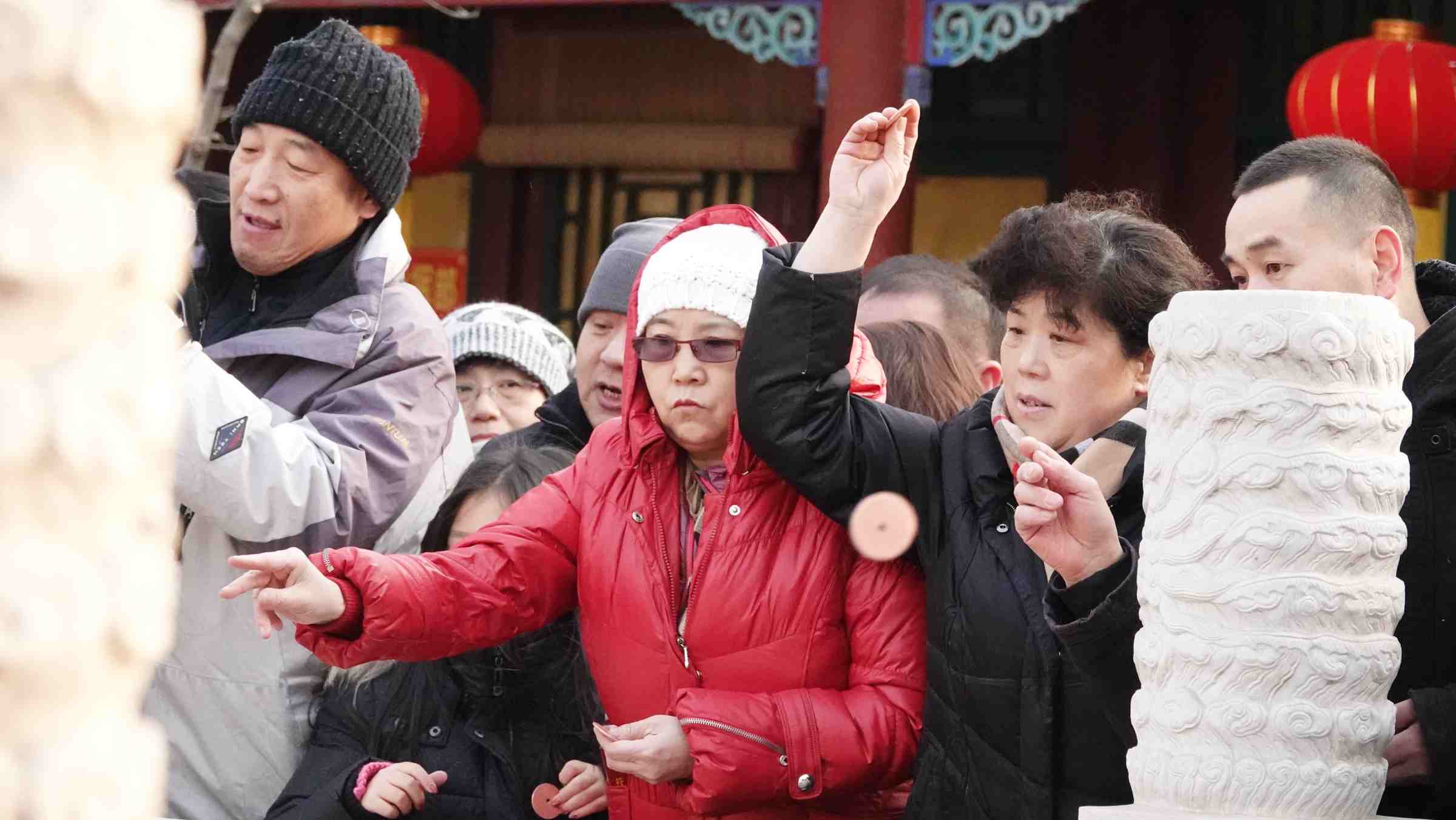
People tossing coins to hit the bell. /CGTN Photo
People tossing coins to hit the bell. /CGTN Photo
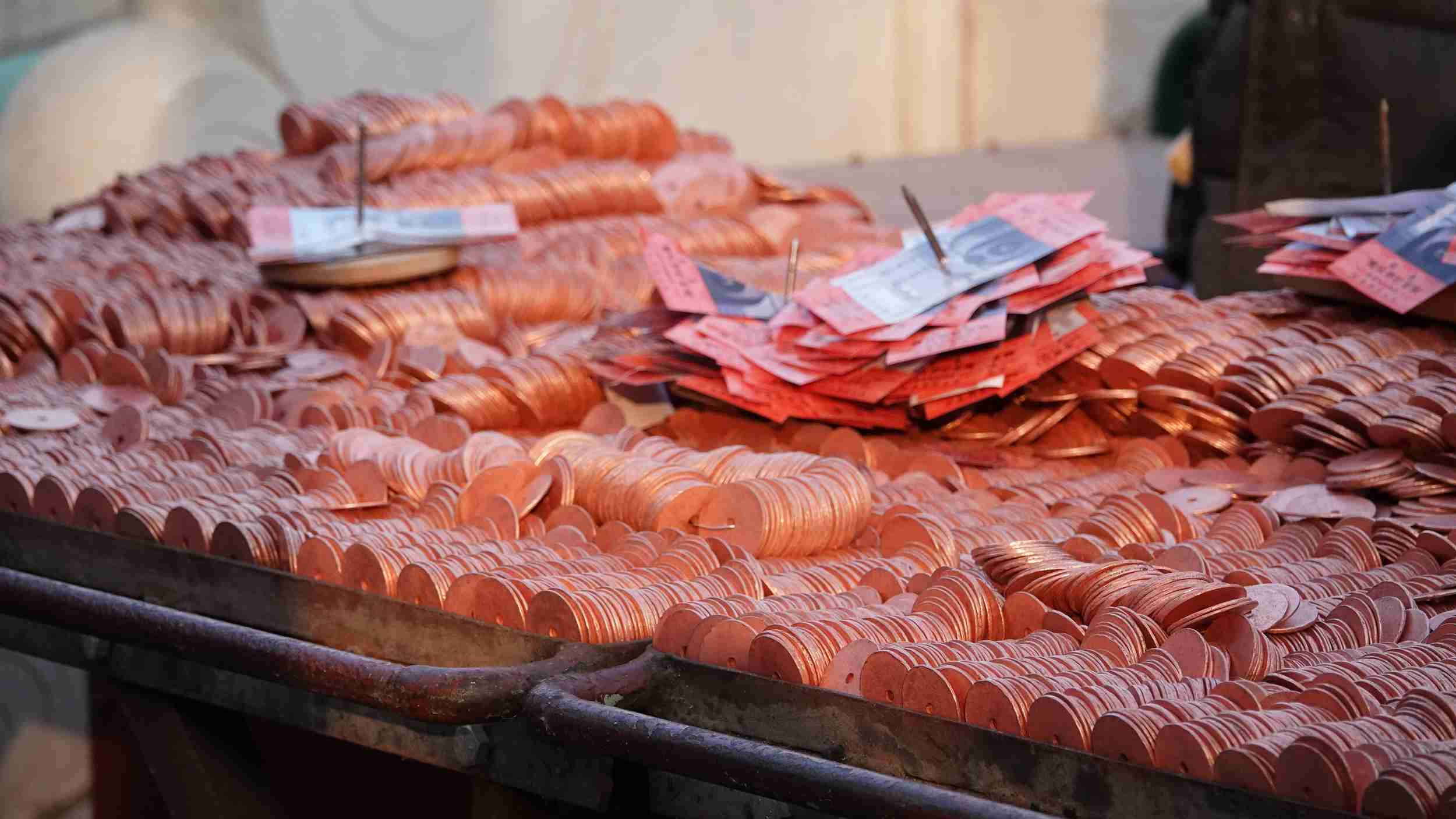
Copper coins for sale. /CGTN Photo
Copper coins for sale. /CGTN Photo
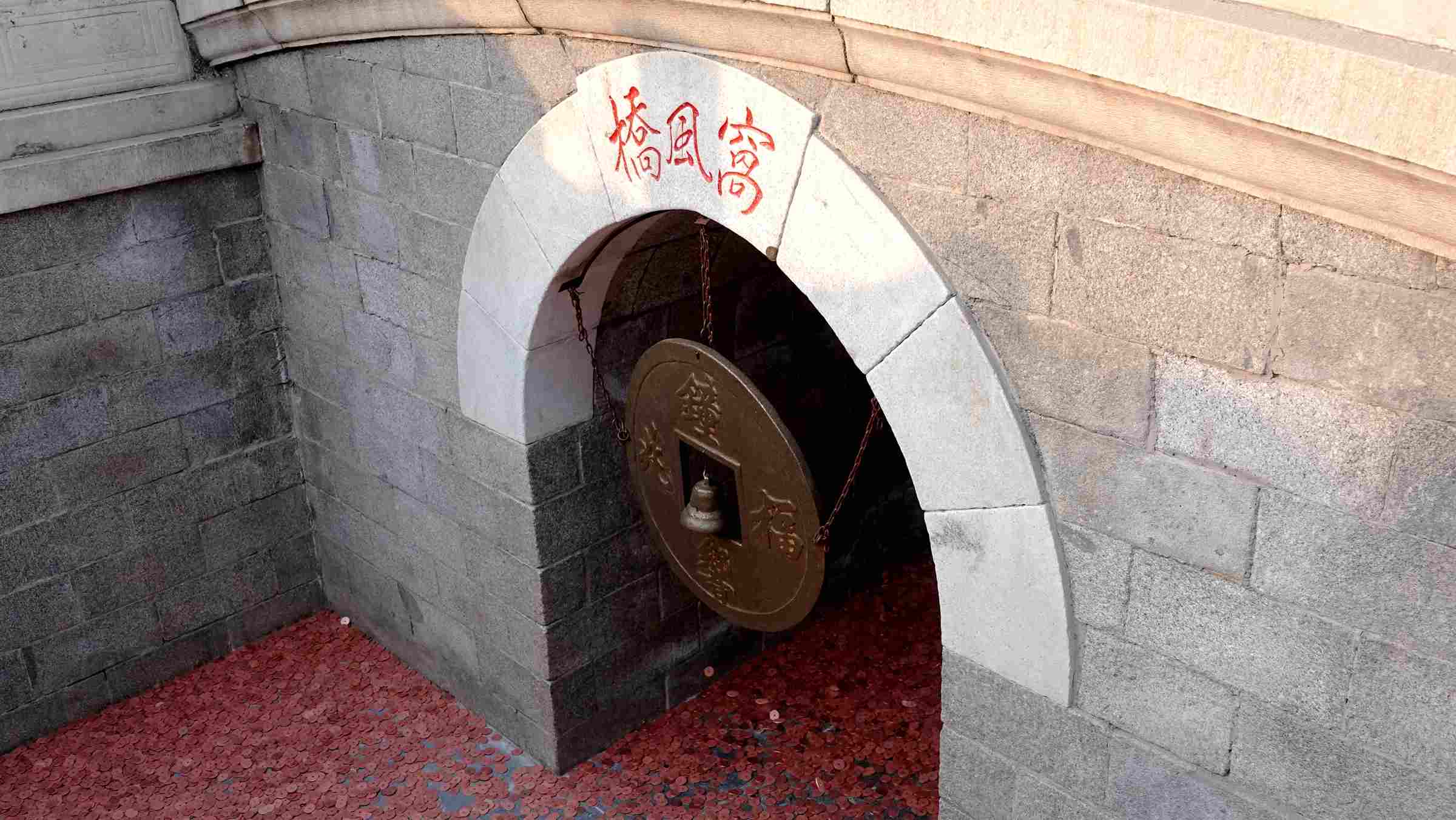
The big copper coin and bell under Wofeng Bridge. /CGTN Photo
The big copper coin and bell under Wofeng Bridge. /CGTN Photo
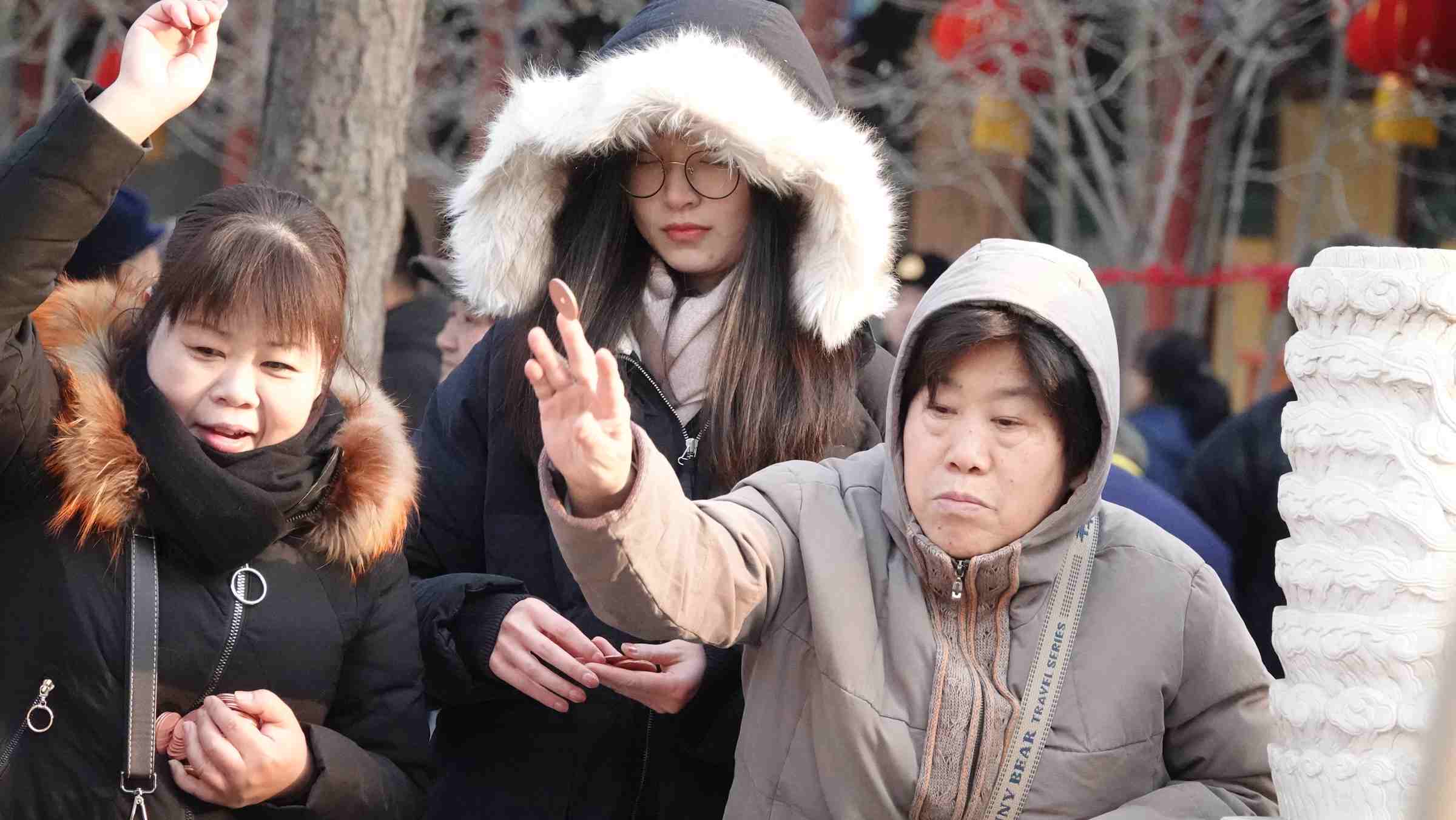
People tossing coins to hit the bell. /CGTN Photo
People tossing coins to hit the bell. /CGTN Photo
9:00 a.m.
Walking across the bridge, Yuhuang Hall is where the Jade Emperor is worshiped. In front of the hall, elder people were tying the red ribbons to the wall. People had written their New Year wishes on the ribbons, with many wishing for good luck and success for their descendants in the coming year.
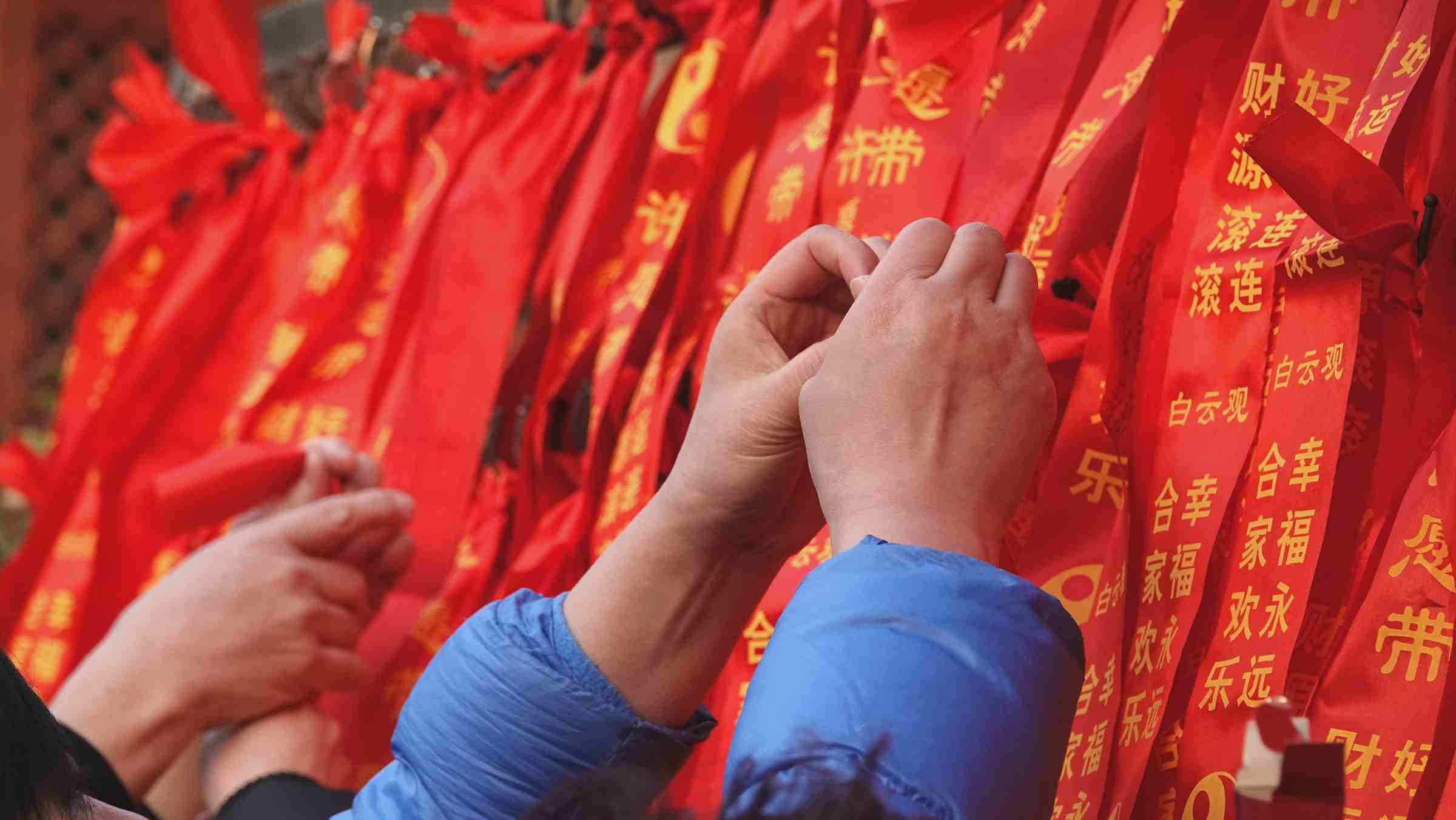
People tying red ribbon. /CGTN Photo
People tying red ribbon. /CGTN Photo
9:20 a.m.
There was another long waiting line where a gilded copper incense burner is seated. It was cast in the Ming Dynasty and is delicately engraved with nine dragons. People were trying to touch the head of the front dragon with their eyes closed, walking from a couple of feet away. It is not as easy as I thought, and it is easy to lose direction after closing your eyes.
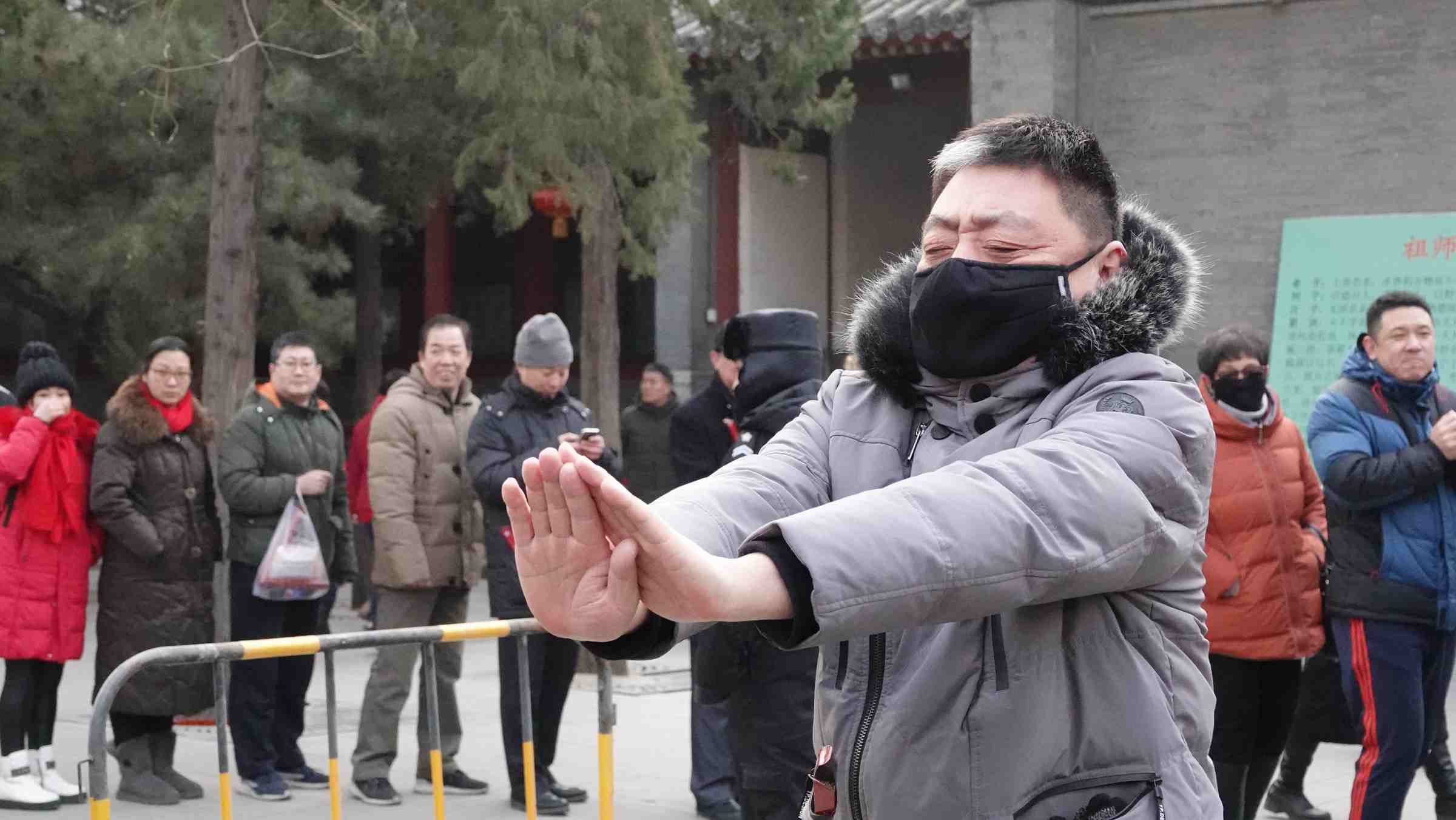
People trying to touch the burner with eyes closed. /CGTN Photo
People trying to touch the burner with eyes closed. /CGTN Photo
9:30 a.m.
Staff members were distributing incense to the visitors at the entrance, as it's forbidden to bring your own incense for safety reasons. What I found interesting is that although the texts of Taoism decry the pursuit of wealth and honors as empty, the gods of wealth attract the most devotees.
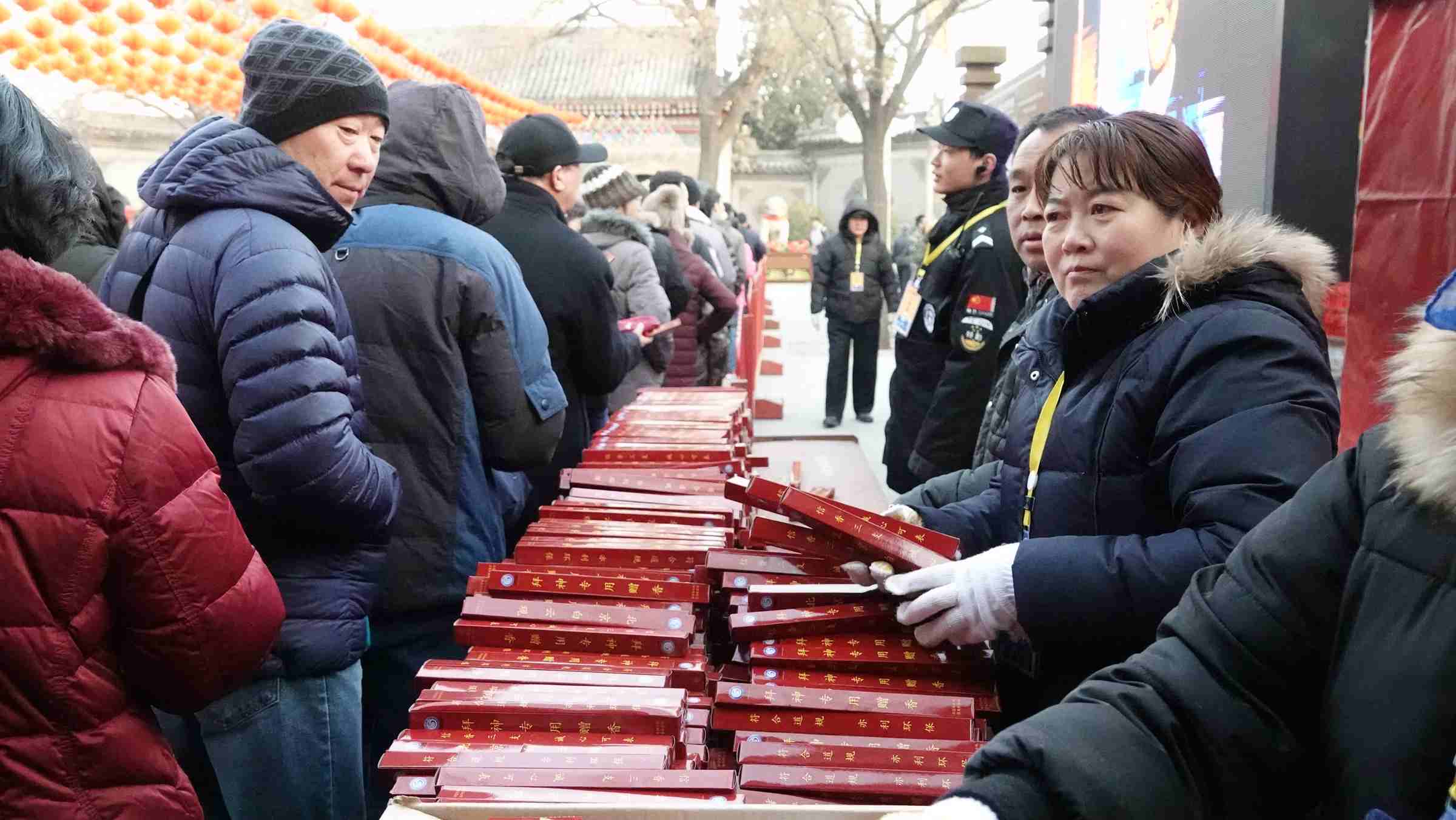
Staff members distributing incense. /CGTN Photo
Staff members distributing incense. /CGTN Photo
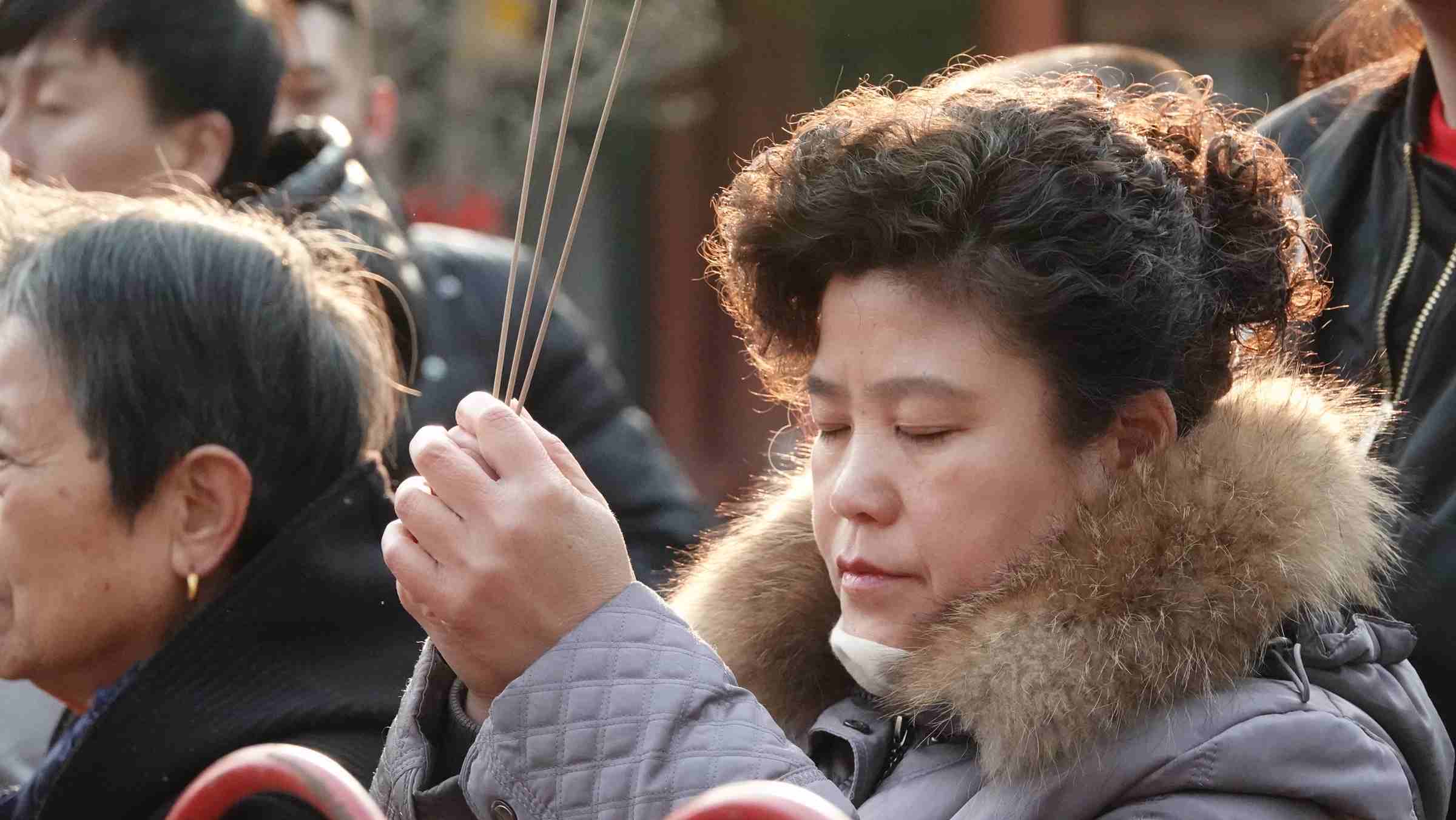
People praying. /CGTN Photo
People praying. /CGTN Photo
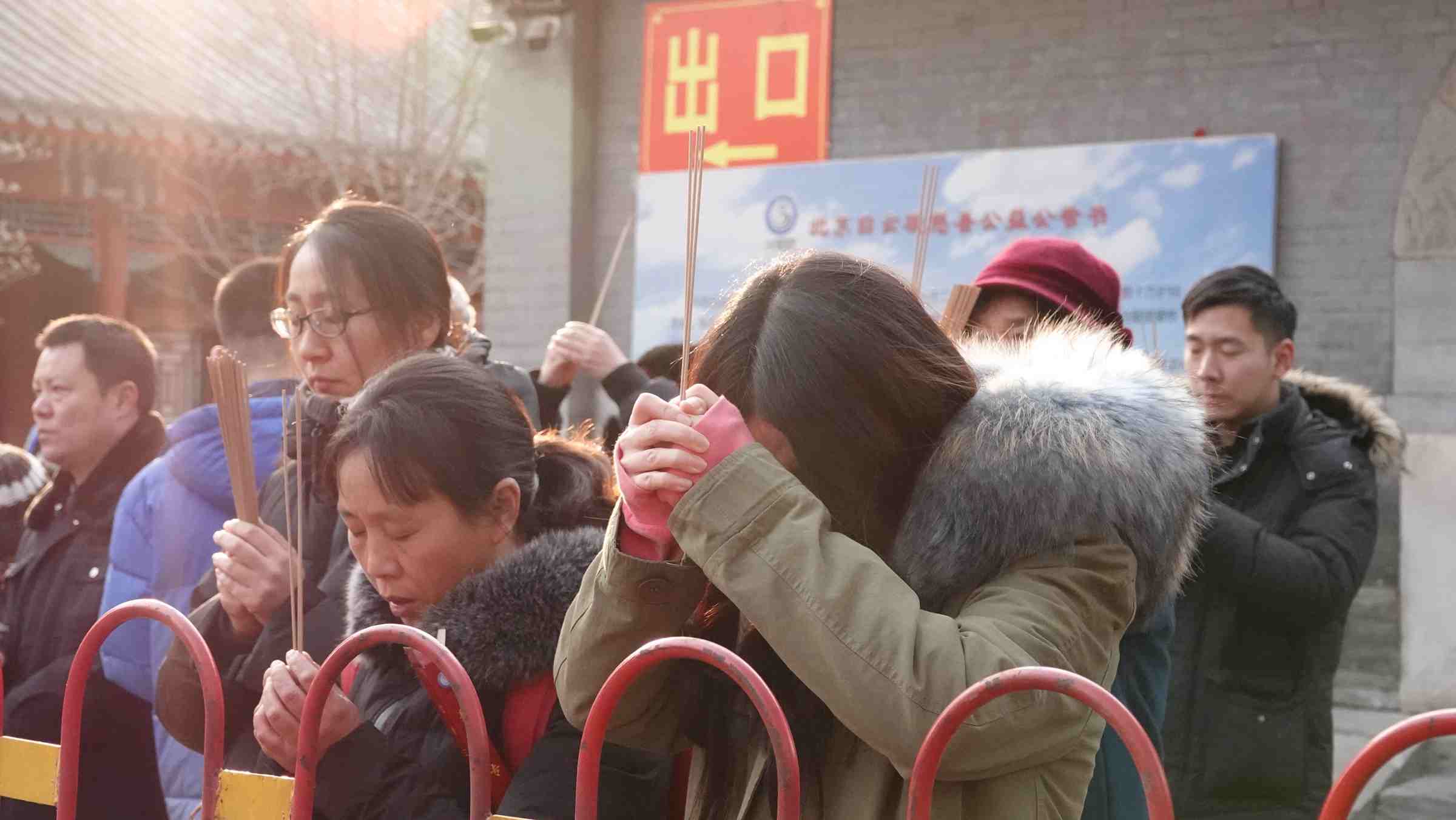
People praying. /CGTN Photo
People praying. /CGTN Photo
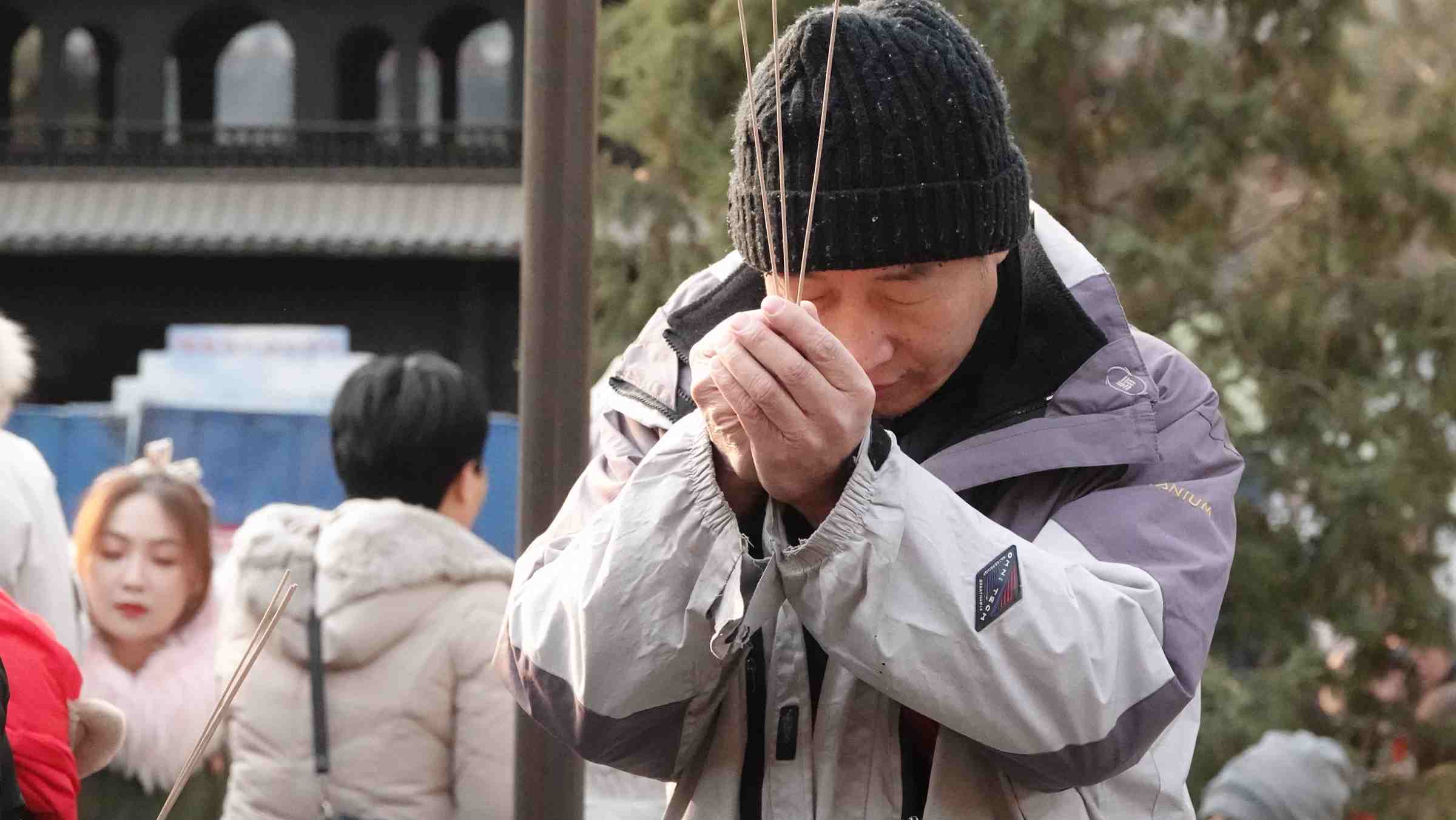
People praying. /CGTN Photo
People praying. /CGTN Photo
10:00 a.m.
My tour today almost came to an end. Just a couple of tips here for potential visitors.
1. The temple doesn't accept credit cards or mobile payments. Cash only.
2. It was really hard to find a parking lot near the temple. The subway is a better choice. Take Subway Line 1 to Muxidi and the temple is a 15-minute walk away.
3. No worries about the long line. Although a large number of people went to the temple on the first day of the New Year, the line moved quickly.
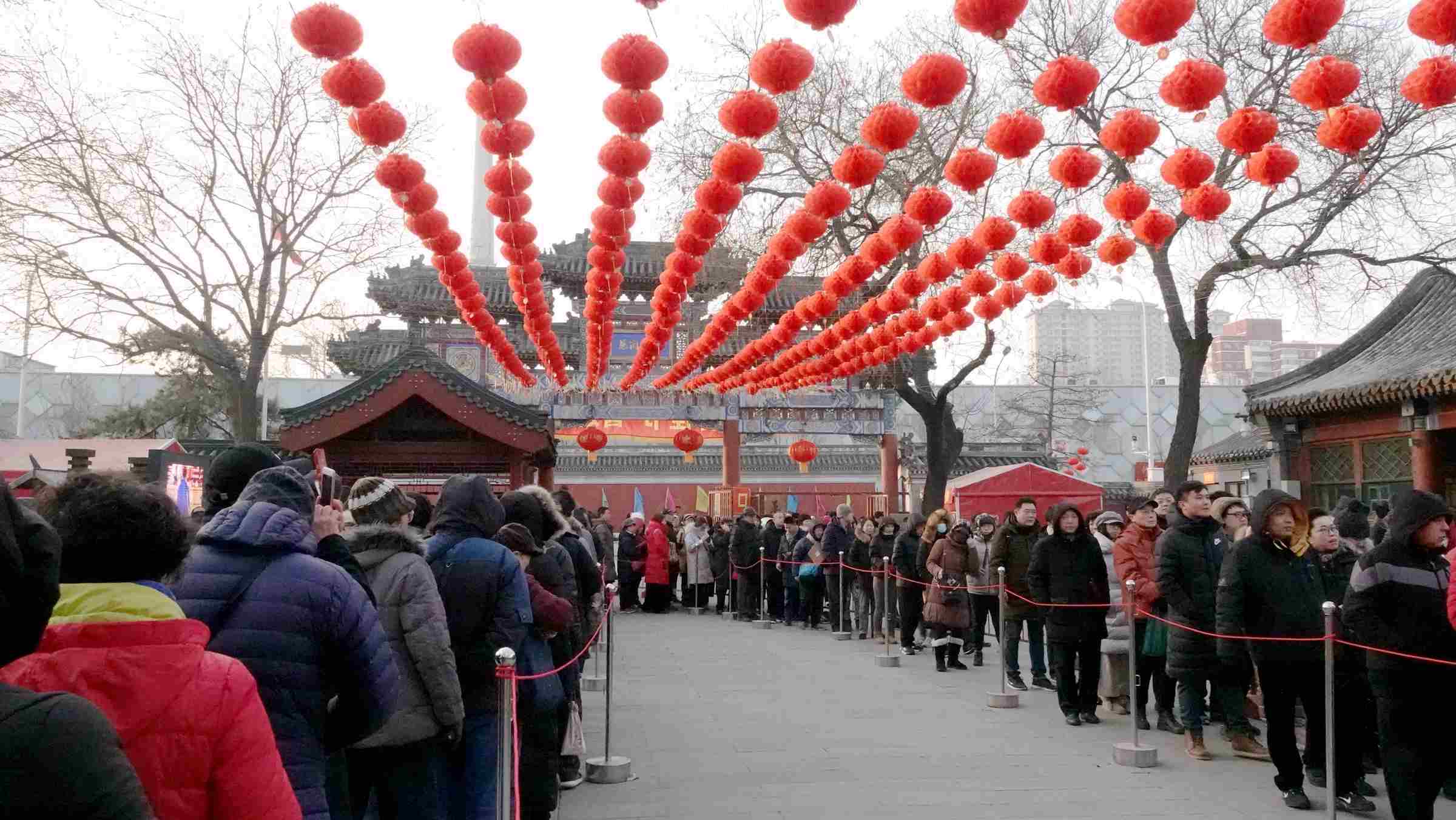
People waiting in line. /CGTN Photo
People waiting in line. /CGTN Photo
The word "touch" was a theme of my entire trip, from touching the stone to the dragon's head. And seeing everyone's hopes for the new year was in itself a "touching" experience.
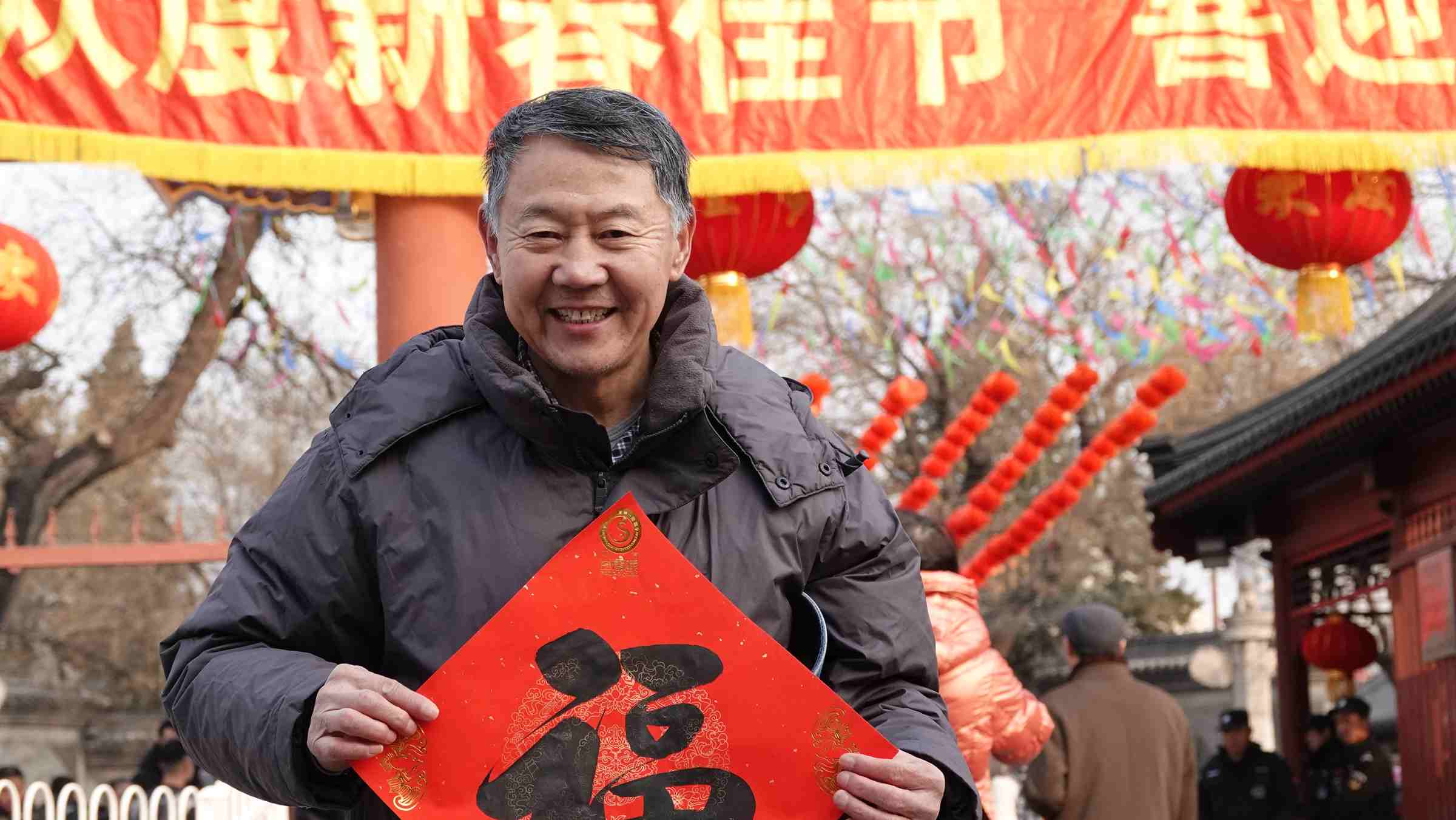
A visitor holding paper with the word "luck" in front of the temple. /CGTN Photo
A visitor holding paper with the word "luck" in front of the temple. /CGTN Photo

